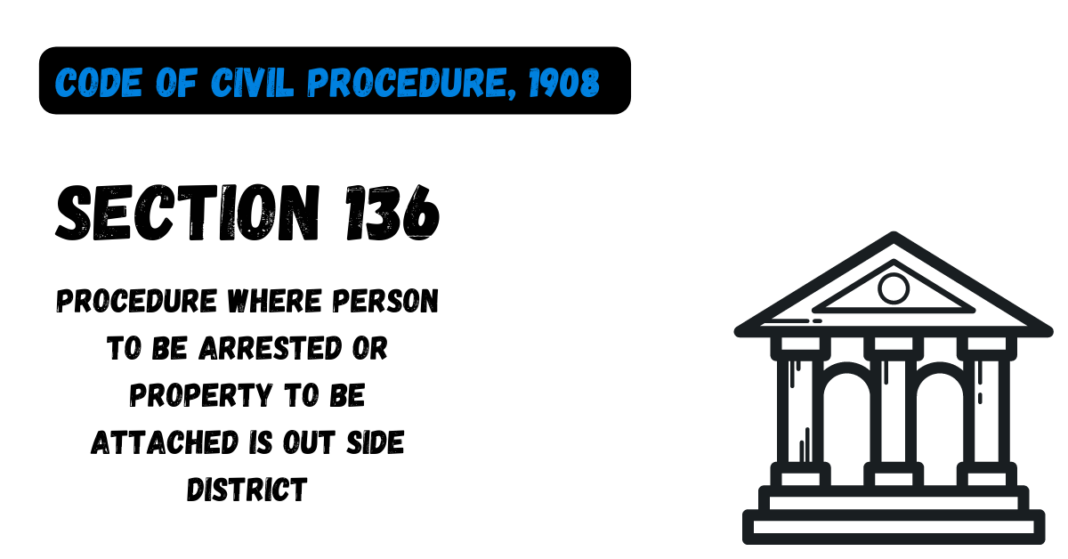(1) Where an application is made that any person shall be arrested or that any property shall be attached under any provision of this Code not relating to the execution of decrees, and such person resides or such property is situate outside the local limits of the jurisdiction of the Court to which the application is made, the Court may, in its discretion, issue, a warrant of arrest of make an order of attachment, and send to the District Court within the local limits of whose jurisdiction such person or property resides or is situate a copy of the warrant or order, together with the probable amount of the costs of the arrest or attachment.
(2) The District Court shall, on receipt of such copy and amount, cause the arrest or attachment to be made by its own officers, or by a Court subordinate to itself, and shall inform the Court which issued or made such warrant or order of the arrest or attachment.
(3) The Court making an arrest under this section shall send the person arrested to the Court by which the warrant of arrest was issued, unless he shows cause to the satisfaction of the former Court why he should not be sent to the later Court, or unless he furnishes sufficient security for his appearance before the later Court or for satisfying any decree that may be passed against him by that Court, in either of which cases the Court making the arrest shall release him.
(4) Where a person to be arrested or movable property to be attached under this section is within the local limits of the ordinary original civil jurisdiction of the High Court of Judicature at Fort William in Bengal or at Madras or at Bombay, the copy of the warrant of arrest or of the order of attachment, and the probable amount of the costs of the arrest or attachment, shall be sent to the Court of Small- Causes of Calcutta, Madras or Bombay, as the case may be, and that Court, on receipt of the copy and amount, shall proceed as if it were the District Court.





